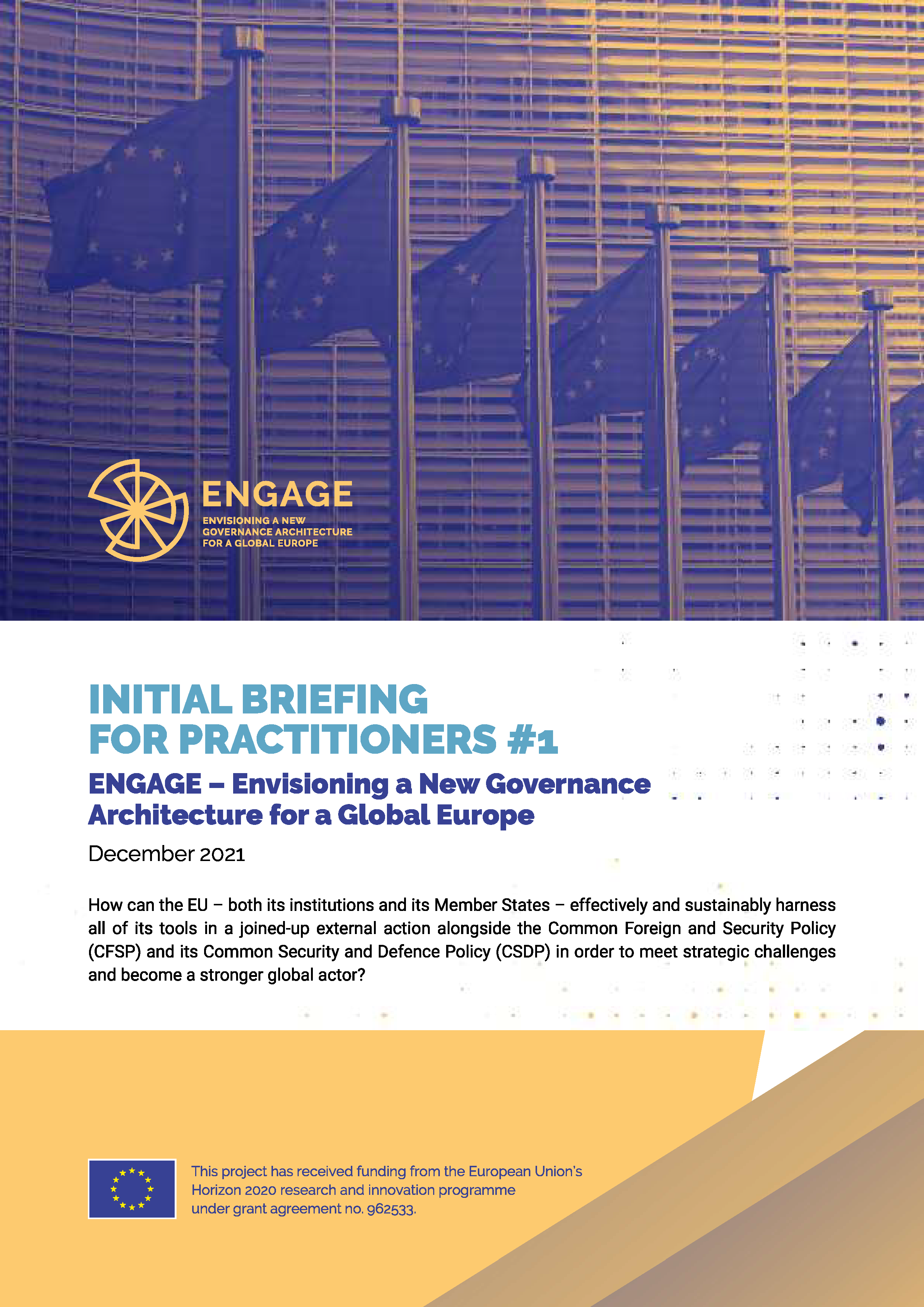
Publications

Harnessing the EU’s Comparative Advantages in Conflict Management
This policy brief examines how the EU can leverage its unique strengths to become more proactive, assertive, and effective on the international stage. It offers several recommendations to achieve this goal, including leveraging the expertise of EU agencies for external action, empowering and expanding the corps of EU Special Representatives (EUSRs) and intensifying support for civil society engagement. These measures aim to enhance the EU's role in conflict prevention, mediation, and resolution, while also promoting gender mainstreaming, economic development and environmental protection.

Enhancing the EU’s Strategic Partnerships
This policy brief examines the European Union's strategic partnerships as a foreign policy tool in today's complex global landscape and questions their effectiveness, coherence, and sustainability. The pertinence of the these strategic partnership and their strategic value have become increasingly ambiguous. To address these challenges, we propose several steps for the EU to consider. Firstly, a comprehensive review of existing partnerships is necessary, including streamlining successful ones and terminating those no longer feasible. This effort should be led by the European Commission and the European External Action Service, with input from other institutions. Secondly, prioritizing partnerships with like-minded democratic states and international organizations such as the United States, the United Kingdom, and the G7 countries can ensure long-term synergies and shared interests. Lastly, harmonizing the EU's strategic objectives with those of its Member States requires improved communication and coordination, particularly in multilateral settings.

Forging a Credible Enlargement Policy
This policy brief highlights the inadequacies of the EU's accession policy in the aftermath of Russia's invasion of Ukraine. It argues that the disconnection between the enlargement policy and geopolitical realities leaves Eastern European states in a precarious situation. The brief suggests essential recommendations, including reducing the Council's role, adopting qualified majority voting, setting target admission dates, and emphasizing a merit-based accession process, without necessitating Treaty changes.

Coordinating External Action Beyond Crisis
This policy brief advances recommendations to creatively coordinate existing tools, instruments and resources across multiple policy areas to bolster the EU’s external action. For greater effectiveness, it suggests better coordination within EU delegations, smoother policy mainstreaming and the leveraging of the Team Europe approach in both crisis and non-crisis situations.

Making Faster and Better Decisions in EU Common Foreign and Security Policy
This policy brief puts forward four recommendations to improve the EU's Common Foreign and Security Policy's efficiency, allowing the union to become a more assertive global actor. Compiling pre-existent ENGAGE research, it offers three different avenues for policymakers to efficiently advance CFSP objectives through qualified majority voting.

Prepare for the Fight of the Future
Decades of underinvestment and uncoordinated military capability development have hollowed out Europe’s armed forces. With war having returned to Europe, EU Member States must boost their own security and better coordinate their efforts. This brief puts forward recommendations to improve cooperation in capability development and reduce European fragmentation and inefficiencies.

Initial Briefing for Practitioners #2
This brief presents practitioner-oriented implications derived from the research conducted in the second year of the ENGAGE project, for which it presents four sets of takeaways. The first set focuses on the acceptability of EU efforts in defence and security in the national parliaments of Member States and among the public. The second set of takeaways is related to structural changes in the EU’s external environment. The third set zooms in on the legal bases for the EU’s external action, while the fourth and final set relates to various tools, policies and strategies of the EU’s external action.

Initial Briefing for Practitioners #1
This brief presents initial practitioner-oriented implications derived from research conducted in the first year of the ENGAGE project. It provides an overview of key global trends and dynamics linked to the transformation of the global order, reflects on the national acceptability of EU external action, delivers an overview of the legal base and governance structures of CSDP and CFSP and it puts forward definitions for the effectiveness, coherence and sustainability of the EU’s external action.

